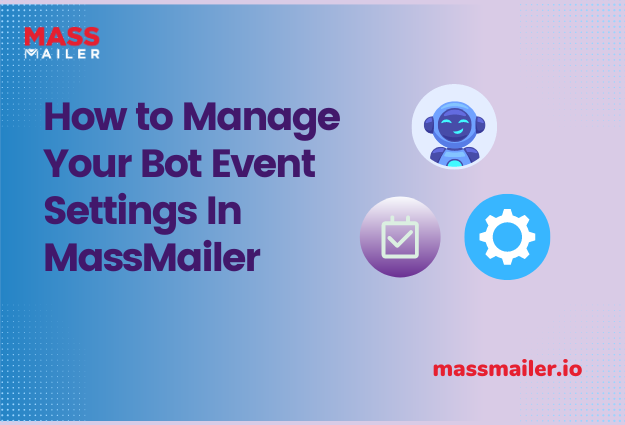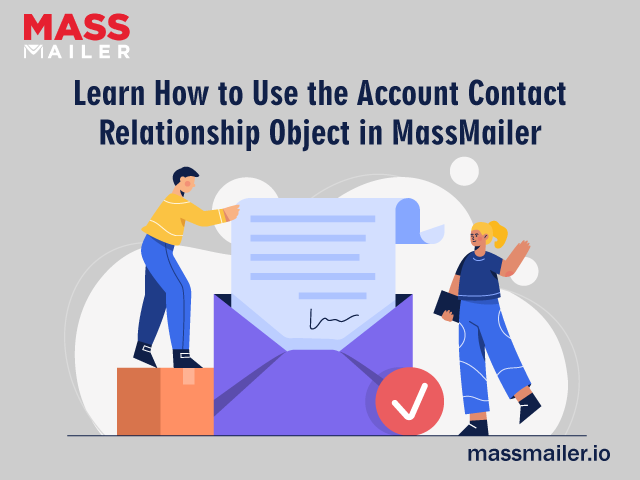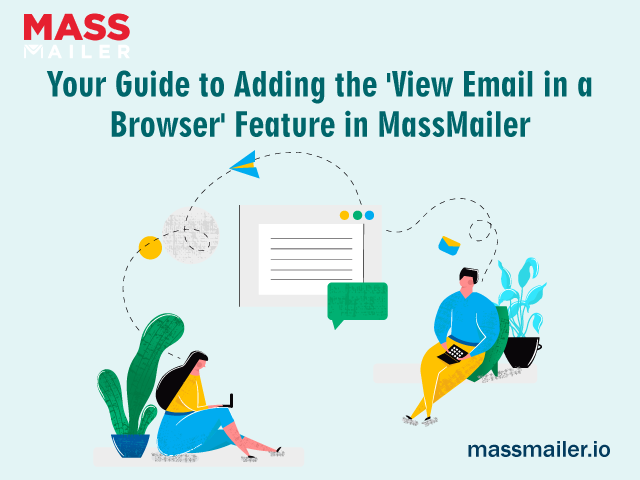Table of Contents
Email is one of the most potent ways digital marketers connect with their audience and other prospects. Most digital marketing teams use mass email services to send emails, but the standard manual email to clients is still a pervasive way to connect. With that said, this also opens you to potential security issues.

Having the best email security is a must for a business that relies on emails so much. Here’s what digital marketers must know about email security, how to protect themselves, and the best practices you can do to make sure you’re safe online.
How Emails Work and How To Secure Them
Before we discuss email security, we need first to understand how they mostly work. Knowing how email works beyond creating email templates can give you a general idea of what you can do.
Emails consist of sending a message using a mail client, delivering it through a server, and sending it through an internet relay. The receiver will then get the email through their own server and client. Through the process, the user encrypts the email through a security protocol and breaks it down into smaller pieces called packets.
Each packet contains the contents of the email, together with the details of the sender. Once the email is sent, the receiver’s client combines these packets sequentially, decrypts them on their end, and shows their content.
Securing email is a must for any organization but especially for digital marketers. Not only does an email contain your contact information, but many emails also contain sensitive data for your business. Most digital marketers also do financial transactions through emails. You likely even have trade secrets in your email.
1. Email Security Threats Are Everywhere
As a digital marketer, it’s crucial to grasp how the internet works and the threats available to you. Email security will try to protect you from some of the most common email threats that target email clients and delivery systems.
These include:
- Malware and ransomware via spam
- Phishing
- Business email compromise
- DDoS attacks
- Sniffing attacks
- Server vulnerabilities
- Authentication attacks
While some of these are more things that you need to consider with your tech team, many capitalize on human error. Spam, for example, sends you erratic emails that you might be interested in, only to take your identity and your personal information.
On the other hand, phishing sites may pretend to be websites that you may trust, which include banks, financial institutions, and other commonly used brands. These try to steal your login name and password, steal your identity, or try to get financial information from your side.
What You Can Do
How can you resolve these? First, you want email protection for your organization. It’s necessary to make sure that you secure both your server and client with email spam protection and a phishing detector to protect your system.
However, security on the client-side is more dependent on how educated the users are. If you’re a small team, it’s crucial to teach your members the telltale signs of phishing and spam email. Care is a must, especially in teaching people how to identify such threats.
Spam filters from the server side are a must, and most email service providers have built-in filters in the system. Most filters will also have anti-DDoS protection and malware scanners, especially for email attachments and hyperlinks.
2. Clients May Not Have Stellar Digital Security
As a digital marketer, you are not only a guru when it comes to marketing, but you also help multiple organizations protect themselves. Every website and social media relies on strong email security, as these accounts are the key to everything. If business owners forget passwords on their CRM, they will likely go back to their email to check and reverify.
As a de facto tech expert, you’re likely well-versed in email security. Unfortunately, there’s a reasonable chance your clients are not. Most business owners, especially those with brick and mortar businesses, are only passable in tech. There will be clients whose only tech skill is to use social media and open their emails.
The severe lack of internet education makes them big targets for malicious actors, especially with phishing and malware. As the one who is in charge, not only of business marketing but also social media and website maintenance, it’s crucial to educate your customers on combating email fraud.

Clients May Not Have Stellar Digital Security
What You Can Do
It’s essential to provide proper user education to clients. While many businesses may brush this off as a part of their “responsibility,” user buy-in is vital to help reduce human errors. You need to make clients aware of compliance email threats. Education is excellent in lowering the impact of fraudulent emails and gaining unauthorized access to trusted emails.
To ensure better buy-in, start detailing the risks of phishing, ransomware, and spam. Compliance training should be a must, especially for small businesses that are more at risk for such issues. If you’re looking for a strategy, you can also help your clients by including email security education in your digital marketing package.
Educate them about email protection tools they can use, how they can do it, and the types of behavior expected from them. Use trusted web email defense to filter out spam and stop phishing attacks.
3. Your Team Might Be A Big Security Risk
One of the biggest issues with email security is having many people with a ton of access to crucial information. In digital marketing, the project lead will likely only have to access the resources needed by the project itself. If you’re the business owner, you likely have full rights access to all information.
In most organizations, ransomware attacks and data theft comes from several sources – usually internal. These can be malicious or unmalicious intent from employees and an incident of social engineering. In most cases, the person’s level of access dictates how much information goes away.
For example, some external threats may pose as one of the team leaders or administrators. Some employees may inform them of user passwords over email, which is common in bigger teams. Given enough access, malicious actors can take most, if not all, of the company’s most vital assets through a single point of entry.

Your Team Might Be A Big Security Risk
What You Can Do
When it comes to these kinds of email security threats, digital marketers need to ensure their agency goes the extra mile. You want to keep your internal systems and business servers clean and well protected with several levels of access.
Digital marketers need to create group policies to prevent unauthorized members from having unrestricted access to everything. Make policies as restrictive as possible, only allowing members of your team access to what they need.
An employee who has administrator rights to most of the company data needs security and compliance training. You must provide training for areas like GDPR, which outlines several standards for data protection within a business entity.
4. Data Leaks Can Happen That Is Out of Your Control
When it comes to email security, another common problem for most is the existence of data leaks. Companies have been under attack from hackers for the past half a decade and more. With everything online and connected, even most organizations you trust will likely experience hacks and data leaks.
What is more problematic with data leaks is they’re out of your control. Even if you do almost everything right for your organization, trusted companies that get a ransomware attack will have private customer information leaked. Once everything is on the internet, you should consider such details compromised.
Not all compromised organizations leak out sensitive customer information like private financial data. Even a simple leak of username and password database logs can be problematic. If you’re the type who uses only a few central passwords, you’re likely putting yourself at risk.
What You Can Do
When it comes to data leaks, there are not a lot of things you can do to prevent other organizations from experiencing them. However, there are ways for you to protect yourself and your accounts, especially those with compromised passwords.
For starters, you would want to keep abreast with the news. Nowadays, most companies would need to announce if they have data leaks within the company and how much data was stolen. Knowing is half the battle, and the other includes taking care of your accounts.
With all your email accounts, it’s vital to activate two-factor authentication (2FA) to add an extra layer of protection. On top of changing your passwords, you want a 2FA system that makes it more difficult for hackers to get your data. Even if a hacker manages to get your password, they won’t be able to access it without your trusted devices.
5. You Can Become A Source of Malicious Emails
For digital marketers, one surprise that can take them back is knowing that their organization is sending out malicious spam and emails to their clients. Not only will this be a backbreaking type of issue to resolve, but your reputation will also greatly suffer.
The most dangerous form of hacking is never knowing that you were compromised, to begin with. If you do regular email marketing, you’re likely sending hundreds, if not thousands, of emails a day. If your system is compromised, malicious actors are likely slipping spam, especially those who stole your credentials.
Hackers also use sniffing attacks to intercept outbound emails, spoof them, and pretend to be you or another organization. By injecting themselves through unencrypted communication, these types of attacks can hit your company’s reputation and put your customers at risk.
What You Can Do
One vital process that you need to add to your email security is outgoing mail filters, firewalls, and virus protection. You want email protection that scans your email and attachments for known virus signatures, stops them from going out, and alerts admin teams about the event.
Adding a firewall and using policies to prevent flagged emails from going into the wild can help save you time and money. By preventing these from going out, you protect your reputation and reduce the need for damage control measures down the line.
Set for several flagged keywords. If you can, protect your emails by preventing access from several geographical locations where hackers come from.
6. Public WiFi Can Intercept Your Private Data
So, you’ve improved your email security at your organization, using secure servers and two-factor authentication. Everything seems fantastic if you’re a small business, digital marketer. What about freelance digital marketers and one-person teams? What about consultants who do most of their work at home or in public?
Most freelancers do their work in public, usually through a WiFi hotspot in a coffee shop, airport, or fast food. These put your email credentials at risk because connections to these spots are highly insecure. At best, you likely won’t get your email sent. At worst, network sniffers might be connected, and they’re hijacking your emails.
Much like how sniffing attacks work, network sniffers on the public network are pretty common. They can potentially monitor your internet activity by intercepting the data packets you send. These packets will contain personal information from you and the receiver of your mail.

Public WiFi Can Intercept Your Private Data
What You Can Do
When you’re in public, it’s vital to have a virtual private network (VPN) connection whenever you try to access your credentials. VPNs are systems that route and encrypt your activity through a series of other networks, improving your system security and preventing people from sniffing your packet data.
The encryption provided by a good VPN provider is military-grade, which means it will take time to unravel its contents without a decryption key. Since most decryption keys are end-to-end, which means they only exist for the receiver and the sender, you can stop hackers from intercepting your emails.
VPNs also prevent other attacks on your system, including malware injections and man-in-the-middle attacks. You would also want to disable automatic connections for your WiFi to prevent public connections without your authorization.
Don’t log onto sensitive accounts as much as you can, primarily if it provides administrator access to would-be hackers. Keep your personal firewall up and turn off file sharing protocols. A VPN can help but doing a few extra steps can come a long way towards your protection.
The Bottom Line
Email security is a matter of knowledge, preparation, and prevention. Even the most prominent organizations in the world can experience a lull from thinking that their email protection is enough. You want buy-in from all stakeholders, employees, and clients, together with the right tools.
Digital marketers are helping pave the way for real-world and online businesses, connecting them with the customers that need their products and services. Extra email security comes a long way and will save you time, money, and a whole lot of pain down the line.




